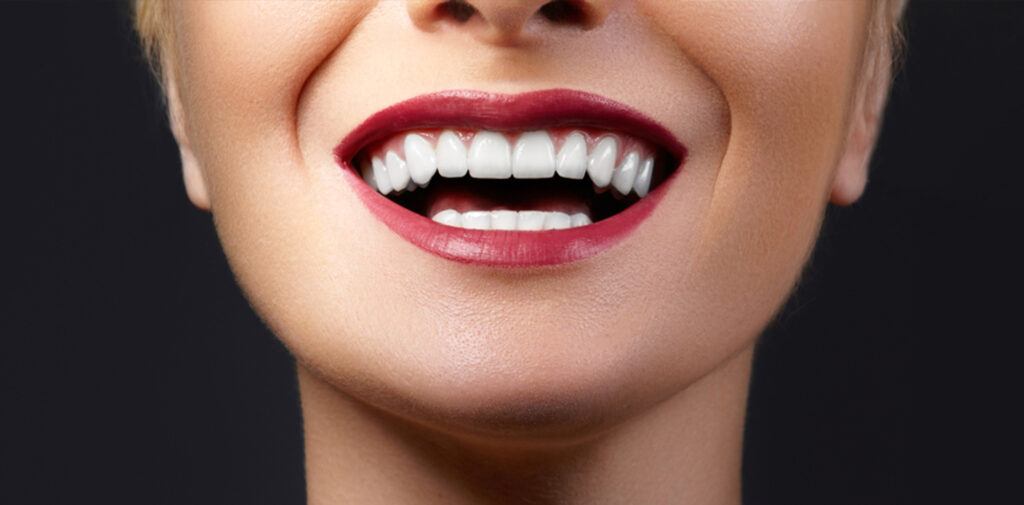
Glass ceramic crowns are made from lithium disilicate. The excellent aesthetics, durability, and strength of glass-ceramic crowns make them a popular choice among cosmetic dentists. Glass-ceramic crowns are best suited for front teeth.
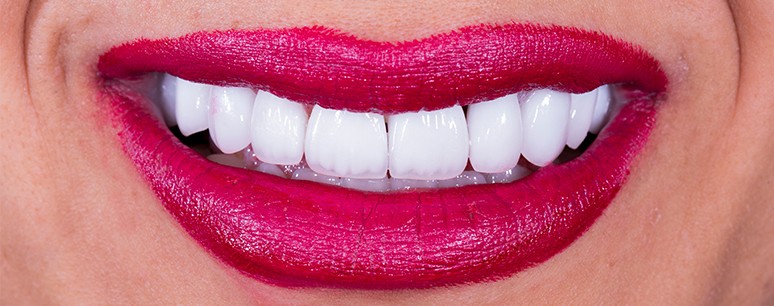
Glass Ceramic Crowns Benefits
- Front teeth can be restored with them since they provide a perfect blend of translucency and natural appearance. Glass-ceramic crowns are more translucent than zirconium crowns.
- As glass-ceramic crowns do not contain metal alloys, you won’t see any gray lines at the gumline as you would with metal crowns.
- Glass-ceramic crowns have excellent durability and they are impervious to cracking, fracturing, or chipping.
- The crowns can be prepared in very thin sections due to their excellent strength and fracture resistance. In addition to ensuring optimal aesthetics, the maximum amount of natural tooth structure is preserved during preparation, strengthening your tooth.
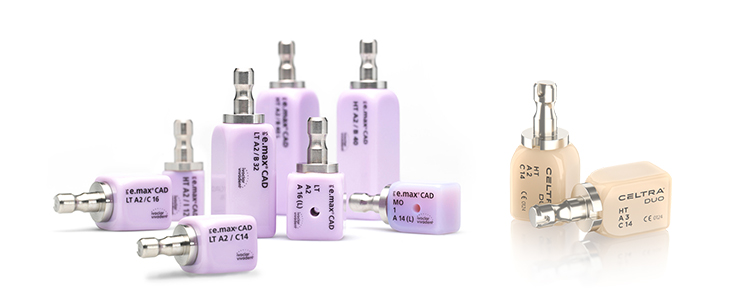
Glass Ceramic Crowns Procedure
1st Appointment
- In addition to evaluating the X-ray and examining your teeth, your dentist will match the shade of the crown with your natural teeth.
- A local anesthetic will be administered
- A small amount of tooth structure will be removed to prepare the tooth
- Take an impression of your tooth using an intra-oral camera of conventional mould filled with dental paste that you will be asked to bite into. Your tooth impression will be sent to the dental laboratory where your crown will be made.
- A temporary crown will be placed until your permanent crown is ready for fitting. Refrain from eating sticky or hard food until your final fitting appointment. Also, it is best to avoid chewing from that side.
2nd Appointment
- At this appointment, the fitting will be checked in terms of bite, size, shape, and colour. If all is in order and the results are satisfactory, in some cases, at this 2nd appointment the crown can be polished and cemented
3rd Appointment
- At this appointment final adjustment, polishing, and permanent fitting of the crown is done. If needed an extra one or two appointments may be arranged to perfect the fitting.

Glass Ceramic Crowns Brands
Celtra Duo
It is a zirconia-reinforced lithium silicate microstructured high-strength glass ceramic material manufactured by Dentsply Sirona (U.S.). The near-atomic dissolution of the zirconia does not cloud the looks while reinforcing the glass matrix. Its high strength and aesthetic qualities make Celtra Duo an outstanding choice for prostheses.
Celtro Dup (ZLS) not only gives the material excellent light-optical and mechanical properties, due to its high glass content, but the additional benefit of self-healing is also provided when fired.
Glass Ceramic Crowns Features And Benefits
- In long-term chewing simulations, it has high strength and longevity
- Excellent light-optical qualities with fluorescence and a chameleon effect that allows some of the colour to be absorbed from neighbouring teeth virtually eliminate the difference between the restoration and the natural tooth.
- Exceptional edge stability produces restorations with robust, long-lasting margins that are resistant to chipping.
Indications
- Anterior (front side of the jaw) crowns
- Inlays
- Onlays
- Veneers
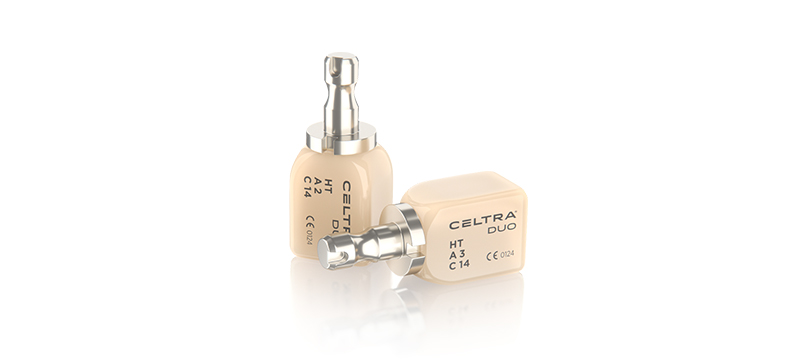
IPS e.max
A glass-ceramic made of lithium disilicate and produced by Ivoclar Vivadent (multinational, originated in Germany). Strong, extremely translucent, and highly aesthetically pleasing, with precise fit, form, and functionality. This material yields amazing results because of its superb light-optical qualities and natural-looking teeth coloring. Excellent flexural strength and high fracture toughness combined with dental-specific adjustments account for the material’s exceptional performance. The material’s clinical success is evidence of its high quality. Additionally, these characteristics give you the freedom to practice dentistry in accordance with conservative principles. The restorations can be made as monolithic restorations that are pigmented, or they can be veneered in a very aesthetic way, depending on the needs of the patient.
Features And Benefits
- High flexural strength and resistance to fracture
- It is possible to create veneers with quite thin dimensions that have a translucent appearance identical to genuine enamel. This makes it simpler to produce outstanding colour-matching outcomes.
- Ability to conceal dark underlying colours or to be specifically created so that favourable underlying colours can be seen
Indications
- Crowns
- Inlays/onlays
- Veneers
- Thin veneers
- Anterior (front) bridges
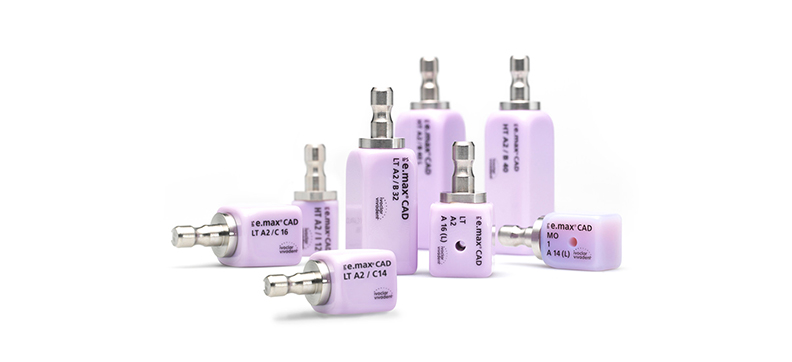
Selecting the Best Glass and Ceramic Brands for Restoration
The proper brand for your restoration should be chosen for more reasons than just aesthetics.
Before making a choice, we advise talking over the two possibilities with your cosmetic dentist because there are a number of additional variables to consider, including the structure and form of the teeth, the placement of the restoration, and its intended use.
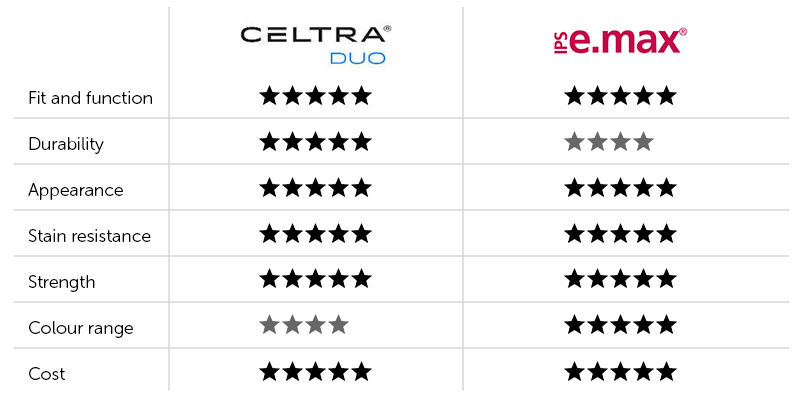
Itinerary
Treatment Specific
Frequently Asked Questions
What Are Some Common Uses of Glass Ceramic Crowns?
- Stained teeth: Glass Ceramic crowns and veneers are excellent for stained teeth and they have resistance against fracture and chipping.
- Crooked or fractured teeth: Teeth can be restored and reshaped using Glass Ceramic crowns especially in the anterior region.
- After root canal treatments: Teeth can become brittle after root canal treatments. Glass Ceramic crowns are a great choice to restore those teeth as they offer excellent strength and durability.
What Are The Benefits?
- Durability and Strength: Glass-ceramics are made of lithium disilicate; a glass ceramic that possesses excellent strength. These crowns are less likely to crack or fracture.
- Appearance: Due to its translucency, it’s the best match for your natural teeth.
- All-ceramic: Glass Ceramic crowns do not have a metal alloy base so they won’t be visible under gumlines.
- Conservative: Due to their resistance to fracture and chipping, Glass Ceramic crowns can be prepared in thin sections so only a minimal amount of natural tooth structure is removed during the preparation.
What to Expect After You Have Your Glass Ceramic Crown?
Right after your new crown is cemented, you may experience some sensitivity to cold. This is normal because the tooth and the surrounding area might be slightly irritated during the procedure. You might also feel that your bite is off in the first couple of days. If the “off” feeling still persists after that, it might require a slight adjustment.
It is very important that you maintain excellent oral hygiene with your new crown or bridge. A crowned tooth might give the wrong impression that it won’t decay like your natural teeth but it is still susceptible to decay near the gumline. You should continue to brush and floss as normal.
E-max crowns are very strong but they still have the potential to fracture the same as a natural tooth. Avoid doing anything with a crown or bridge that could damage a natural tooth. Do not chew ice as extreme temperature change increases the fracture of crowns and natural teeth.
TAKE ADVANTAGE OF DENTAL SAVINGS IN 5 SIMPLE STEPS
Complete The Enquiry Form Below
Fields marked * are compulsory
[wpforms id=”797″]

